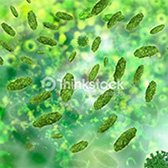 Organisms that live on the human body when put under certain conditions can cause infectious diseases, also known as transmissible diseases. Some of these organisms are bacteria, viruses, fungi or parasites. Infectious diseases can be passed from person to person as well as extracted from insects, animal bites, or even by consuming contaminated food.
Organisms that live on the human body when put under certain conditions can cause infectious diseases, also known as transmissible diseases. Some of these organisms are bacteria, viruses, fungi or parasites. Infectious diseases can be passed from person to person as well as extracted from insects, animal bites, or even by consuming contaminated food.
Examples of infectious diseases caused by bacteria are strep throat, urinary tract infections, and tuberculosis. When infectious diseases are caused by viruses they can result in something as simple as the common cold to something severe, like AIDS. Diseases caused by fungi can lead to infection of your lungs and nervous system. Infections caused by parasites can lead to malaria.
Common symptoms consist of fatigue, diarrhea, muscle aches, and a fever. Depending on the gravity of the condition, treatment can range from needing home remedies to hospitalization.
Less severe infectious diseases can be controlled with good hygiene, such as frequent hand-washing and vaccines. More severe cases require constant therapy. People more likely to catch an infectious disease are those with a weak immune system. Immune systems can be altered when people take steroids, have HIV, AIDS, or cancer.


